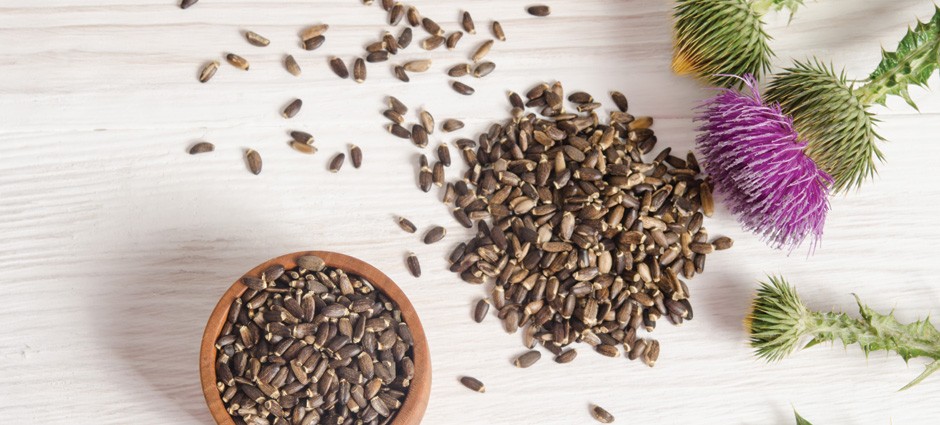People have used milk thistle for liver disorders, such as hepatitis and cirrhosis, and gallbladder problems. It is the most commonly used herbal supplement in the U.S. taken for liver problems.
› Health benefits
Little is known about the health benefits of using milk thistle as a supplement. Results from clinical trials of milk thistle for liver diseases have been mixed, and two rigorously designed studies found no benefit.
The 2008 Hepatitis C Antiviral Long-Term Treatment Against Cirrhosis (HALT-C) study, sponsored by the National Institutes of Health, found that hepatitis C patients who used silymarin had fewer and milder symptoms of liver disease and somewhat better quality of life but no change in virus activity or liver inflammation.
A 2012 clinical trial, co-funded by the National Center for Complementary and Integrative Health and the National Institute of Diabetes and Digestive and Kidney Diseases, showed that two higher-than-usual doses of silymarin were no better than placebo for chronic hepatitis C in people who had not responded to standard antiviral treatment.
Results from a 2013 clinical study suggest that milk thistle may enhance standard treatment in young people with a particular form of anemia (Cooley’s anemia).
Compounds in milk thistle may lower blood sugar levels in people with type 2 diabetes.
› How much do I need?
The dosage varies depending on age and what it is being used for. Be sure to follow relevant directions on product labels, and consult your pharmacist, physician or other healthcare professional before using.
Milk thistle may produce allergic reactions, which are more common among those with allergies to plants in the same family (ragweed, chrysanthemum, marigolds and daisies).
› As a supplements
Milk thistle can be found as capsules, powders and extracts.
Source: National Center for Complementary and Integrative Health
Please consult your health care provider before making changes to your vitamin/supplement regimen.


